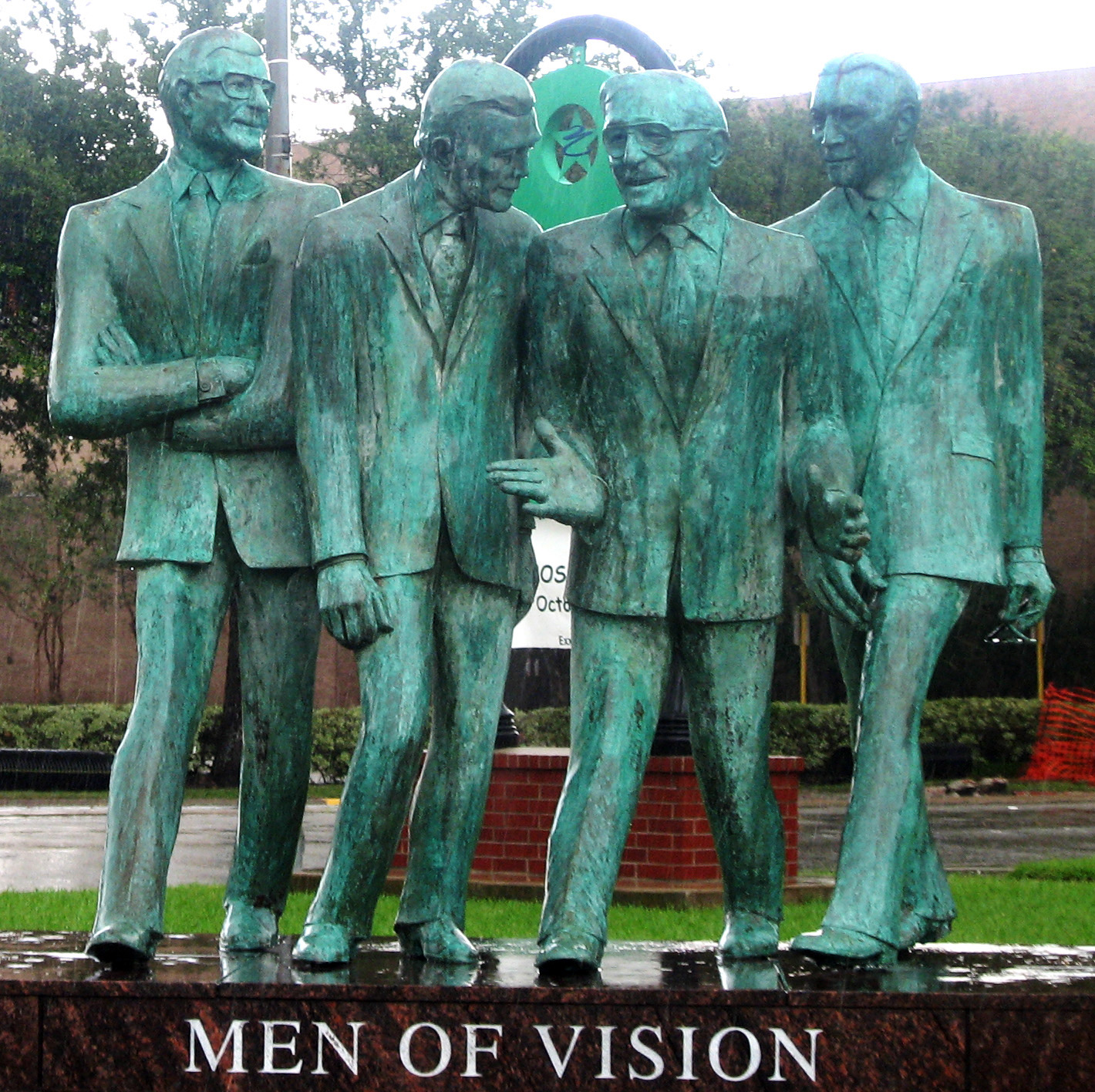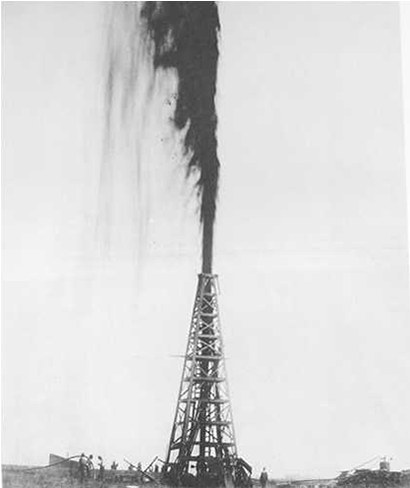|
Texas Energy Museum
The Texas Energy Museum is a museum in Beaumont, Texas in the United States. The museum was formed in 1987 to tell the story of oil through state of the art exhibits including talking robotic characters. The museum opened on January 10, 1990, the anniversary of the Spindletop gusher. The museum is part of a concentration of several museums in the downtown Beaumont area. It is located adjacent to the Tyrrell Historical Library and the Art Museum of Southeast Texas. The Beaumont Children's Museum is temporarily located across the street in the Beaumont Civic Center. The Edison Museum and Fire Museum of Texas are within a few blocks. The museum The museum has two floors of displays. The interactive exhibits "...focus on the geology, history and production of oil..." The museum has several presentations about the Spindletop oil discovery and production. Collections include a combination of items from the ''Spindletop Museum of Lamar University'' and the ''Western Company of Nort ... [...More Info...] [...Related Items...] OR: [Wikipedia] [Google] [Baidu] |
Beaumont, Texas
Beaumont is a coastal city in the U.S. state of Texas. It is the county seat, seat of government of Jefferson County, Texas, Jefferson County, within the Beaumont–Port Arthur, Texas, Port Arthur Beaumont–Port Arthur metropolitan area, metropolitan statistical area, located in Southeast Texas on the Neches River about east of Houston (city center to city center). With a population of 115,282 at the 2020 United States census, 2020 census, Beaumont is the largest incorporated municipality by population near the Louisiana border. Its metropolitan area was the List of Texas metropolitan areas, 10th largest in Texas in 2019, and List of metropolitan statistical areas, 132nd in the United States. The city of Beaumont was founded in 1838. The pioneer settlement had an economy based on the development of lumber, farming, and port industries. In 1892, Joseph Eloi Broussard opened the first commercially successful rice mill in Texas, stimulating development of rice farming in the area; ... [...More Info...] [...Related Items...] OR: [Wikipedia] [Google] [Baidu] |
List Of Petroleum Museums
This is a list of petroleum, gas, and related museums around the world. Asia * Oman Oil and Gas Exhibition Centre, Al-Qurum * Petroleum Museum, Malaysia * Taiwan Oil Field Exhibition Hall, Taiwan * KOC Ahmed Al Jaber Oil and Gas Exhibition, Kuwait * Digboi Oil Centenary Museum, Digboi, Assam, India Europe * Erdöl-Erdgas-Museum Twist, Twist, Germany * German Oil Museum, Lower Saxony, Germany * Muzeul Național al Petrolului, Ploiesti, Romania * Musée du pétrole de Merkwiller-Pechelbronn, Merkwiller-Pechelbronn, France * Norwegian Petroleum Museum, Stavanger, Norway Engelsbergs Oljefabrik Ängelsberg, Sweden * Technopolis (Gazi), Athens, Greece * GASmuseet, The Danish GAS Museum, Hobro, Denmark Ignacy Łukasiewicz Oil and Gas Industry Museum Bobrka, Poland * Warsaw Gasworks Museum, Warsaw, Poland Project Parco Museo del Petrolio Vallezza Fornovo di Taro (Parma), Italy * Fisogni Museum, Tradate (Varese), Italy (largest gas pumps and petroliana collection, certified by G ... [...More Info...] [...Related Items...] OR: [Wikipedia] [Google] [Baidu] |
Museums Established In 1987
A museum ( ; plural museums or, rarely, musea) is a building or institution that cares for and displays a collection of artifacts and other objects of artistic, cultural, historical, or scientific importance. Many public museums make these items available for public viewing through exhibits that may be permanent or temporary. The largest museums are located in major cities throughout the world, while thousands of local museums exist in smaller cities, towns, and rural areas. Museums have varying aims, ranging from the conservation and documentation of their collection, serving researchers and specialists, to catering to the general public. The goal of serving researchers is not only scientific, but intended to serve the general public. There are many types of museums, including art museums, natural history museums, science museums, war museums, and children's museums. According to the International Council of Museums (ICOM), there are more than 55,000 museums in 202 countries ... [...More Info...] [...Related Items...] OR: [Wikipedia] [Google] [Baidu] |
Petroleum Museums
Petroleum, also known as crude oil, or simply oil, is a naturally occurring yellowish-black liquid mixture of mainly hydrocarbons, and is found in geological formations. The name ''petroleum'' covers both naturally occurring unprocessed crude oil and petroleum products that consist of refined crude oil. A fossil fuel, petroleum is formed when large quantities of dead organisms, mostly zooplankton and algae, are buried underneath sedimentary rock and subjected to both prolonged heat and pressure. Petroleum is primarily recovered by oil drilling. Drilling is carried out after studies of structural geology, sedimentary basin analysis, and reservoir characterisation. Recent developments in technologies have also led to exploitation of other Unconventional (oil & gas) reservoir, unconventional reserves such as oil sands and oil shale. Once extracted, oil is refined and separated, most easily by Continuous distillation#Continuous distillation of crude oil, distillation, into innume ... [...More Info...] [...Related Items...] OR: [Wikipedia] [Google] [Baidu] |
History Museums In Texas
History (derived ) is the systematic study and the documentation of the human activity. The time period of event before the invention of writing systems is considered prehistory. "History" is an umbrella term comprising past events as well as the memory, discovery, collection, organization, presentation, and interpretation of these events. Historians seek knowledge of the past using historical sources such as written documents, oral accounts, art and material artifacts, and ecological markers. History is not complete and still has debatable mysteries. History is also an academic discipline which uses narrative to describe, examine, question, and analyze past events, and investigate their patterns of cause and effect. Historians often debate which narrative best explains an event, as well as the significance of different causes and effects. Historians also debate the nature of history as an end in itself, as well as its usefulness to give perspective on the problems of the p ... [...More Info...] [...Related Items...] OR: [Wikipedia] [Google] [Baidu] |
Museums In Beaumont, Texas
A museum ( ; plural museums or, rarely, musea) is a building or institution that cares for and displays a collection of artifacts and other objects of artistic, cultural, historical, or scientific importance. Many public museums make these items available for public viewing through exhibits that may be permanent or temporary. The largest museums are located in major cities throughout the world, while thousands of local museums exist in smaller cities, towns, and rural areas. Museums have varying aims, ranging from the conservation and documentation of their collection, serving researchers and specialists, to catering to the general public. The goal of serving researchers is not only scientific, but intended to serve the general public. There are many types of museums, including art museums, natural history museums, science museums, war museums, and children's museums. According to the International Council of Museums (ICOM), there are more than 55,000 museums in 202 countries ... [...More Info...] [...Related Items...] OR: [Wikipedia] [Google] [Baidu] |
Industry Museums In Texas
Industry may refer to: Economics * Industry (economics), a generally categorized branch of economic activity * Industry (manufacturing), a specific branch of economic activity, typically in factories with machinery * The wider industrial sector of an economy, including manufacturing and production of other intermediate or final goods * The general characteristics and production methods common to an industrial society ** Industrialization, the transformation into an industrial society * Industry classification, a classification of economic organizations and activities Places *Industry, Alabama *Industry, California ** Industry station *Industry, Illinois *Industry, Kansas *Industry, Maine * Industry, Missouri *Industry, New York *Industry, Pennsylvania *Industry, Texas *Industry Bar, a New York City gay bar *Industry-Rock Falls Township, Phelps County, Nebraska Film and television * ''Made in Canada'' (TV series), a Canadian situation comedy series also known as ''The Industry'' ... [...More Info...] [...Related Items...] OR: [Wikipedia] [Google] [Baidu] |
Patillo Higgins
Pattillo Higgins (December 5, 1863 – June 5, 1955) was an American businessman and a self-taught geologist. He earned the nickname the "Prophet of Spindletop" for his endeavors in the Texas oil business, which accrued a fortune for many. He partnered to form the Gladys City Oil Gas and Manufacturing Company, and later established the Higgins Standard Oil Company. Early life Pattillo Higgins was born to Roberto James and Sarah (Raye) Higgins on December 5, 1863, in Sabine Pass, Texas. His family moved to Beaumont when he was six years old. He attended school until he reached the fourth grade, after which he apprenticed as a gunsmith under his father’s direction. In his youth, he was a violent troublemaker, pulling pranks and harassing African Americans.Tracé Etienne-Gray.Higgins, Pattillo" ''Handbook of Texas Online.'' Accessed October 9, 2006. When he was seventeen, he pulled a prank on a black Baptist church that got the attention of a sheriff's deputy. The deputy fired ... [...More Info...] [...Related Items...] OR: [Wikipedia] [Google] [Baidu] |
Anthony Francis Lucas
Anthony Francis Lucas (born Antun Lučić; September 9, 1855 – September 2, 1921) was a Croatian-born American oil explorer. With Pattillo Higgins he organized the drilling of an oil well near Beaumont, Texas, that became known as Spindletop. This led to the widespread exploitation of oil and the start of the petroleum age. Early life Christened Antonio Francesco Luchich, he was the son of Captain Francis Stephen Luchich, a prosperous Montenegrin shipbuilder and shipowner from the Croatian island of Lesina, and his wife Giovanna Giovanizio. According to Lucas himself, who was proud of his heritage, the Luchich family was pure Montenegrin by blood, descended from ancient Illyrian ( Dalmatian) nobility, and he sometimes called himself in society events "Count Anthony rançois Maria VincentGiovanizio de Bertuchevich Lucas". Born in the Austrian Empire city of Split, his family moved to Trieste, where his father served in the Austro-Hungarian navy. At the age of 20, Lucas co ... [...More Info...] [...Related Items...] OR: [Wikipedia] [Google] [Baidu] |
Texas Oil Boom
The Texas oil boom, sometimes called the gusher age, was a period of dramatic change and economic growth in the U.S. state of Texas during the early 20th century that began with the discovery of a large petroleum reserve near Beaumont, Texas. The find was unprecedented in its size (worldwide) and ushered in an age of rapid regional development and industrialization that has few parallels in U.S. history. Texas quickly became one of the leading oil-producing states in the U.S., along with Oklahoma and California; soon the nation overtook the Russian Empire as the top producer of petroleum. By 1940 Texas had come to dominate U.S. production. Some historians even define the beginning of the world's Oil Age as the beginning of this era in Texas. The major petroleum strikes that began the rapid growth in petroleum exploration and speculation occurred in Southeast Texas, but soon reserves were found across Texas and wells were constructed in North Texas, East Texas, and the Permia ... [...More Info...] [...Related Items...] OR: [Wikipedia] [Google] [Baidu] |
Spindletop-Gladys City Boomtown Museum
The Spindletop-Gladys City Boomtown Museum is located in Beaumont, Texas, to commemorate the discovery of oil at the Spindletop Hill salt dome in Beaumont on Jan. 10, 1901. The discovery sparked an oil boom in Texas that continues today. Along with a gift shop with commemorative gifts, the museum features historical, period reenactments by area performers. A replica of the wooden oil derricks that once dotted the landscape of Spindletop Hill in the early 1900s has been erected near the museum. For special occasions and anniversaries, the museum staff “blows the gusher” with a plume of water and provides a historical narrative and sound effects to simulate the discovery of oil at Spindletop. The museum is on the campus of Lamar University, which owns and operates the museum. Spindletop oil boom The name “Spindletop” dates from before the Civil War when a slight rise of the ground just south of Beaumont, Texas, became known as Spindletop Hill. One theory about the ori ... [...More Info...] [...Related Items...] OR: [Wikipedia] [Google] [Baidu] |



.jpg)

.jpg)
